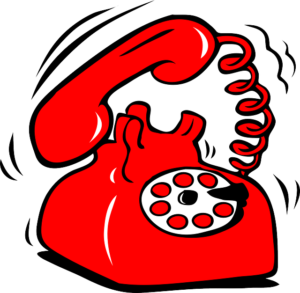When anxiety strikes, try deep breathing exercises like the 4-7-8 method to calm your nervous system quickly. Channel your energy into a creative hobby or take a mindful walk outdoors, focusing on what you see and hear. Listening to your favorite music or solving puzzles can also shift your focus. Connecting with a friend or using guided meditation helps release tension. If you want more practical ways to ease your mind, you’ll find helpful strategies ahead.
Practice Deep Breathing Exercises
Although anxiety can feel overwhelming, practicing deep breathing exercises offers a simple and effective way to regain control. When you focus on your breath, you activate your body’s natural relaxation methods, helping to calm your mind and reduce stress.
Breathing techniques, such as diaphragmatic breathing or the 4-7-8 method, encourage slower, deeper breaths that counteract the shallow, rapid breathing caused by anxiety. By intentionally slowing your breath, you signal your nervous system to shift from “fight or flight” to a state of calm.
You don’t need special equipment or much time—just a few minutes can make a noticeable difference. Make deep breathing a regular part of your routine so you can quickly manage anxiety whenever it arises.
Engage in a Creative Hobby
Alongside deep breathing exercises, engaging in a creative hobby can offer a powerful way to shift your focus away from anxious thoughts.
Creative expression through artistic outlets helps channel your energy into something positive and absorbing. Here’s how you can start:
- Choose an artistic outlet that resonates with you, such as painting, writing, or crafting.
- Set aside a dedicated time daily or weekly to immerse yourself in this hobby, allowing your mind to concentrate on the task.
- Don’t aim for perfection; instead, focus on the process and enjoyment of creating.
Take a Mindful Nature Walk
How often do you pause to truly notice the world around you? Taking a mindful nature walk invites you to slow down and engage in mindful observation, which helps ground you in the present moment.
As you walk, focus on your sensory awareness—feel the texture of leaves under your fingers, listen to birdsong, and notice the subtle scents carried by the breeze. This intentional attention shifts your mind away from anxious thoughts and reconnects you with your environment.
Mindful observation during a nature walk can reduce stress by calming your nervous system and fostering a sense of peace. So, next time anxiety creeps in, step outside and immerse yourself in nature’s details; it’s a simple, effective way to regain control and find calm.
Listen to Your Favorite Music
When anxiety starts to build, tuning into your favorite music can offer an immediate sense of relief. Music therapy shows that melodies can influence your emotions and reduce stress effectively.
To make the most of this tool, consider these steps:
- Curate a playlist creation tailored to your mood—include calming tunes or upbeat songs that lift your spirits.
- Use headphones to block out distractions and fully immerse yourself in the sound.
- Focus on the lyrics or instruments, letting the music guide your thoughts away from anxious feelings.
Try Progressive Muscle Relaxation
Although anxiety can feel overwhelming, you can regain control by practicing progressive muscle relaxation. This technique helps you systematically tense and then relax different muscle groups, easing muscle tension that often accompanies anxiety.
By focusing on these sensations, you shift your attention away from anxious thoughts and toward your body’s physical state. Start by sitting or lying down comfortably, then slowly tighten each muscle group—from your feet to your face—for about five seconds before releasing.
Notice the contrast between tension and relaxation. Regularly using this relaxation technique can reduce stress levels and promote a calmer mind. It’s a simple, effective tool you can use anytime, anywhere to help manage anxiety and bring your body back to a peaceful state.
Write in a Journal
Since anxiety often fills your mind with racing thoughts, writing in a journal can help you organize and process those feelings. Reflective journaling allows you to explore your emotions deeply, while expressive writing encourages you to release pent-up tension through words.
Here’s how to make the most of journaling when anxiety hits:
- Set aside a few minutes daily to write, focusing on how you feel without judgment.
- Use prompts like “What’s causing my anxiety right now?” or “What can I control in this situation?” to guide your thoughts.
- Review past entries occasionally to track patterns and progress, gaining insight into your emotional triggers.
This practice not only distracts you but also builds emotional resilience, making it a powerful tool against anxiety.
Solve Puzzles or Brain Teasers
How can you shift your focus away from anxiety in a constructive way? Engaging in puzzles or brain teasers offers a productive distraction that sharpens your mind. Tackling Sudoku challenges requires logical thinking, helping you redirect anxious thoughts into problem-solving.
Similarly, Crossword puzzles stimulate your vocabulary and memory, which can provide a sense of accomplishment as you fill in each word. These activities not only occupy your mind but also encourage mindfulness by focusing your attention on a clear task.
Incorporating puzzles into your routine can create small moments of calm amid anxiety’s chaos. By challenging your brain, you foster mental resilience and reduce worry’s grip.
Next time anxiety strikes, try reaching for a puzzle—it’s a simple yet effective way to regain control.
Watch a Lighthearted TV Show or Movie
A lighthearted TV show or movie can offer an immediate escape from anxious thoughts by immersing you in humor and uplifting stories. Choosing lighthearted comedies or feel good movies helps shift your focus away from stress and brings a sense of comfort.
Here’s how to make the most of this distraction:
- Pick content that matches your mood—whether it’s a silly sitcom or a warm, feel good movie, the key is enjoyment.
- Watch actively by engaging with the characters and plot, which keeps your mind occupied and less prone to worry.
- Limit your viewing time to prevent overstimulation and maintain a healthy balance.
Using this approach, you can gently ease anxiety and create moments of relief through laughter and positivity.
Connect With a Friend or Loved One
When anxiety starts to feel overwhelming, reaching out to a friend or loved one can provide immediate comfort and a sense of connection. Sharing personal stories with someone you trust helps you feel understood and less isolated. It allows you to express your feelings openly, which can ease your mind.
Additionally, planning future activities together shifts your focus from anxious thoughts to positive anticipation. Whether it’s a simple coffee date or a weekend outing, having something to look forward to creates hope and normalcy.
Don’t hesitate to call, text, or meet up with someone who supports you. These interactions remind you that you’re not alone and strengthen your emotional resilience during difficult moments. Connecting with others is a powerful way to distract yourself from anxiety effectively.
Use Guided Meditation or Visualization Techniques
Although anxiety can feel all-consuming, guided meditation and visualization techniques offer practical ways to regain control and calm your mind. These methods use calming imagery to shift your focus and reduce stress. Here’s how to get started:
- Find a quiet space and use a guided meditation app or audio to lead you through a calming session.
- Practice visualization techniques by imagining peaceful scenes—like a beach or forest—engaging all your senses to deepen relaxation.
- Repeat these exercises regularly, especially when anxiety strikes, to train your mind to respond with calmness.
Conclusion
When anxiety feels like a storm cloud hanging over you, these simple distractions can be your umbrella, offering shelter and calm. By practicing deep breathing, engaging your creativity, or reaching out to someone you trust, you give your mind a break from worry. Remember, you’re not alone in this, and small steps can create big waves of relief. Keep these ideas close—they’re tools to help you find peace amid the chaos.






